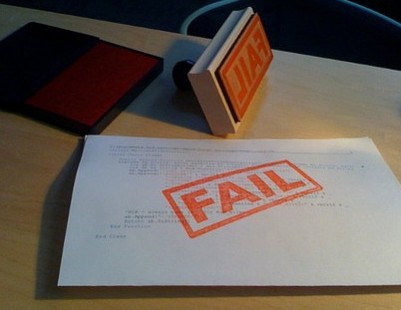Note to climate change deniers: If you're going to lean heavily on a particular paper, make sure it's not copied out of Wikipedia. The journal Computational Statistics and Data Analysis has retracted a 2008 report by statistician Edward Wegman, which claimed the climate change consensus is an artifact of overly-intimate collaboration between scientists — essentially, peer pressure. Denialists love this, needless to say; it's a federally funded report published in a peer-reviewed journal that doesn't just oppose the scientific consensus about climate change, but criticizes the whole idea of scientific consensus. Only problem: It's plagiarized. Oh, and it sucked to begin with.
CSDA's editor retracted the study after plagiarism experts found that it reproduced chunks from Wikipedia and textbooks. That alone doesn't mean its conclusions were flawed, just its composition. But USA Today also spoke to an expert, network analysis professor Kathleen Carley, about the merits of the paper. Her conclusion: Even without the academic dishonesty, this paper wouldn't have gotten an A.
Compared to many journal articles in the network area the description of the data is quite poor. That is the way the data was collected, the total number of papers, the time span, the method used for selecting articles and so on is not well described.
"I see this paper as more of an opinion piece," Carley said.
Apparently the paper's review and acceptance process was suspiciously hasty, too, which might explain why nobody noticed that it was riddled with "[citation needed]." Available evidence suggests it was accepted based after a single reading by the journal editor, on the basis that "I think the paper is very interesting, and I could not identify any errors." The editor says he's pretty sure there was a more extensive review process, but he can't find the documentation, because his dog ate it.



